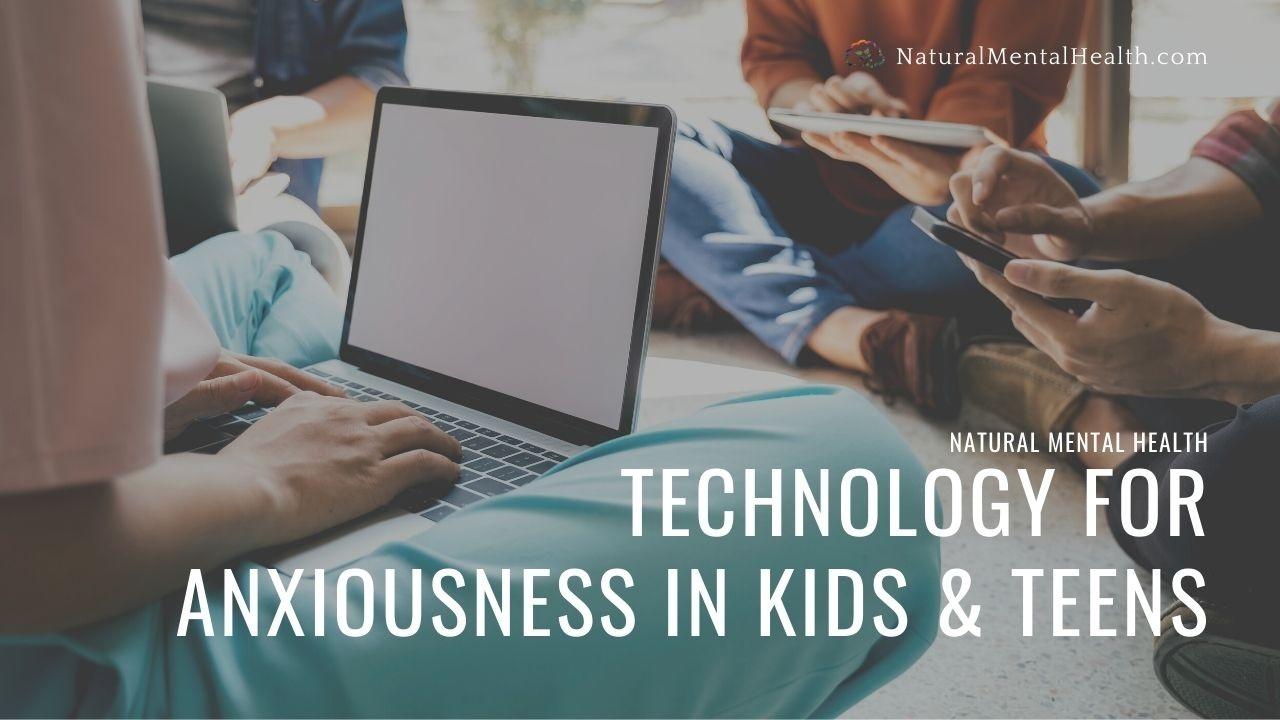
Technology for Anxiousness in Kids & Teens
Aug 11, 2020Timothy Culbert, MD, IFMCP
There is a growing interest in using technology to make relaxation training more fun and engaging. Some have referred to these gadgets as electroceuticals. Below are three technologies that I suggest to my patients for anxiety management.
Heart Rate Variability Biofeedback
Heart rate variability (HRV) involves measuring the beat-to-beat variations in heart rate as it naturally speeds up and slows down throughout the day. A person can then actually see the changing HRV pattern on a computer screen or cell phone and learn to control it. Studies have found that when people are anxious, stressed or scared, their HRV pattern looks messy and disorganized. On the other hand, HRV patterns becomes more rhythmic, organized and regular when strategies are used to shift into a calmer state. I recommend the Inner Balance Smart Phone app and hardware for HRV practice.
Cranial Electrotherapeutic Stimulation
Cranial electrotherapeutic stimulation (CES) is a form of nervous system stimulation that delivers a small, pulsed current via electrodes clipped on the earlobes or placed on the head. CES is used with the intention of treating a variety of conditions such as anxiety, depression, insomnia, and chronic pain.
The device is easy to use and comfortable; most people find that a 20 minute session in the morning for a few weeks, can set them up to feel more calm and emotionally regulated throughout the day.
I have used the device called the Alpha Stim. See www.alpha-stim.com for details.
Transcutaneous Vagal Nerve Stimulation
Transcutaneous Vagus Nerve Stimulation (tcVNS) is a non-invasive and safe technique that appears to enhance brain GABA, serotonin, and noradrenaline levels. It may be helpful for anxiety, sleep, autism, and pain disorders. A more invasive form of vagal nerve stimulation using implantable devices has been helpful for epilepsy and also depression.
In turns out there is an auricular branch of the vagus nerve, just outside of the ear and into the ear canal that can be stimulated with gentle electrical current. This can increase the relaxation response by supporting parasympathetic nervous system activity.
The device has two ear buds to place in the ear canals and then gentle electrical stimulation occurs (along with your choice of music if you would like). It takes about 20-30 minutes and regular use can lead to some sustained calming benefits including better sleep.
I have used the Xen device with good results. See www.neuvanalife.com for details.
Mental Health Books for Kids







